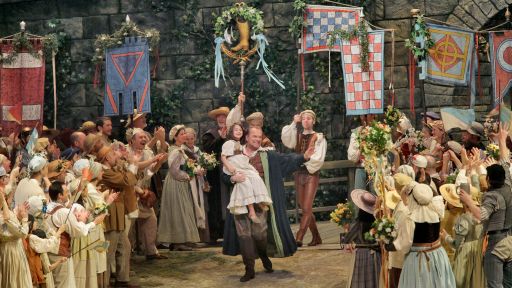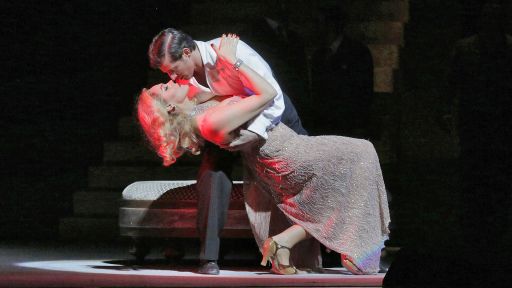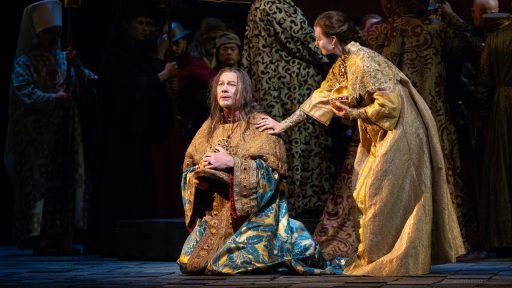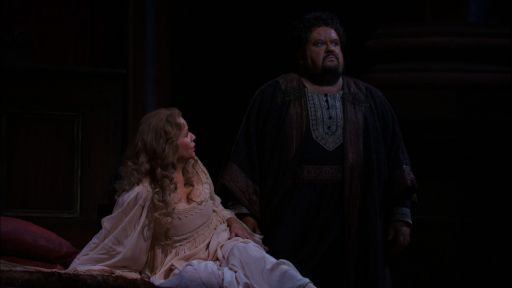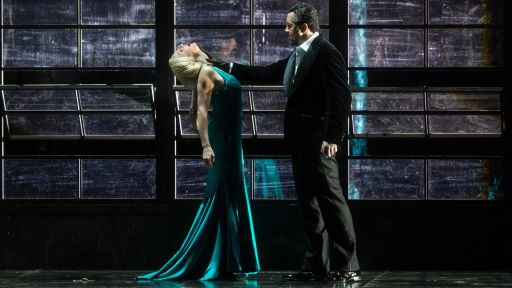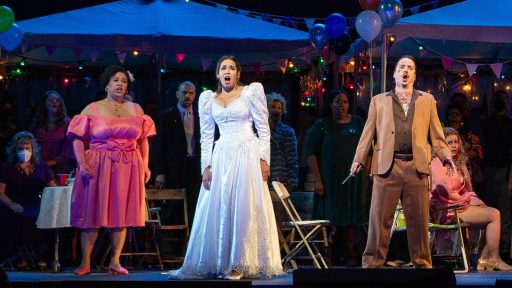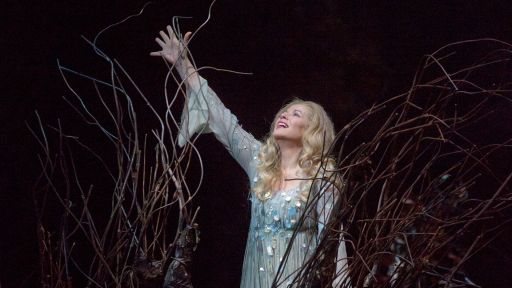Die Meistersinger von Nürnberg (“The Master-Singer of Nuremberg”) receives its first Great Performances at the Met broadcast, Sunday, April 12 at 11 am on PBS (check local listings; in New York, THIRTEEN will air the opera at 12:30 pm).
Fast facts about Richard Wagner’s longest opera
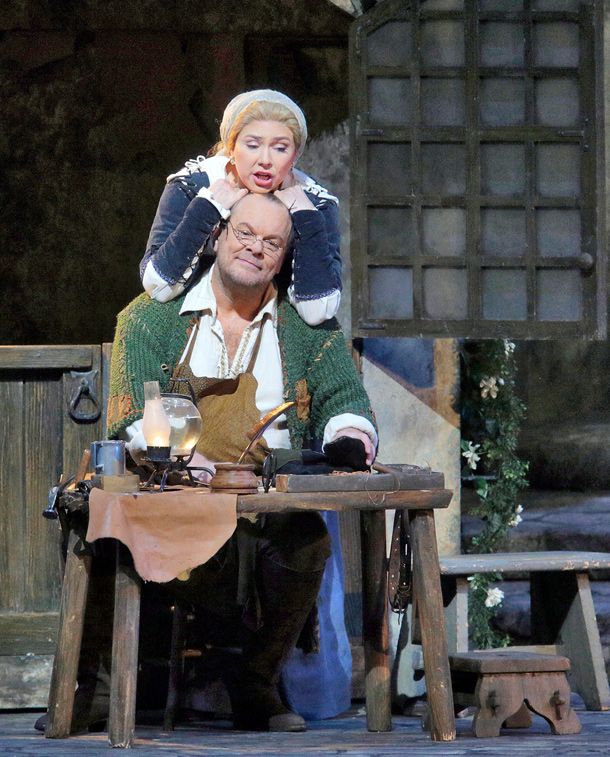
Annette Dasch as Eva and Michael Volle as Hans Sachs in Wagner’s Die Meistersinger von Nürnberg. Photo: Ken Howard/Metropolitan Opera
Die Meistersinger is not just Wagner’s longest opera; it’s also the longest opera in the Met’s repertory. This broadcast of Great Performances at the Met will last five hours.
The opera was first performed in 1868. Nearly 20 years later The Met presented the American debut in 1886, just three years after The Metropolitan Opera was founded.
This is the Met’s final revival of Otto Schenk’s acclaimed 1993 production, which had last been seen at the Met in 2007.
German baritone Michael Volle (b. 1960) stars as the cobbler-poet Hans Sachs. Volle made his Met debut last season as Mandryka in Richard Strauss’s Arabella. He has sung the role of Hans Sachs at Opera Cologne, Zürich Opera, and, in Stefan Herheim’s new production at the Salzburg Festival, a staging that the Met will present in a future season with Volle as Sachs. In the Met’s 2018-19 season, Volle will sing Wotan in complete Ring cycles. From 1999 to 2007 Volle was a member of Zürich Opera.
How does Michael Volle keep his energy up during intermission? He told the Wall Street Journal that he drinks a lot of water, and eats apples or bananas.
The host of this Great Performances at the Met is soprano Renée Fleming, who debuted at the Bayreuth Festival as Eva in Die Meistersinger.
The Real Nuremberger
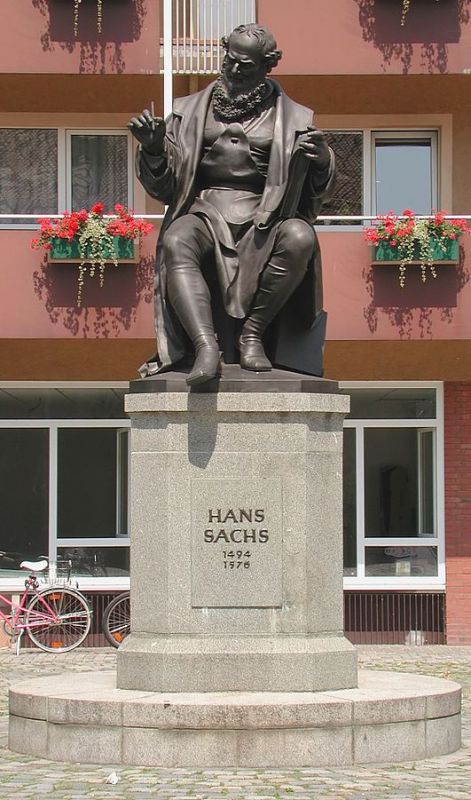
Hans Sachs Memorial in his hometown of Nuremberg, Germany.
Hans Sachs is not a mythical character. Sachs (1494 – 1576) was a Meistersinger (master singer) who lived in Nuremberg. He wrote over 6,000 works. His support of Martin Luther, leader of the Reformation in Germany, once got his writing banned in Nuremberg.
To get through this marathon performance of Die Meistersinger von Nürnberg, you might want to prepare some snacks in advance. The most typical, simple meal in Nuremberg is the Nuremberg Bratwurst (pork sausage). It’s eaten with mustard or horseradish, a roll of bread, and sides of potato salad and sauerkraut. Another typical meal of Franconia — the region that includes Nuremberg — is Franconian “Schäufele” (a pork shoulder “shovel”, served on the bone). That dish is traditionally served with potato dumplings and either fresh salad, red cabbage or sauerkraut.
—–
Have you seen all of this opera before? What are your tips for enjoying a long “master” performance? Share in the comment section below!

